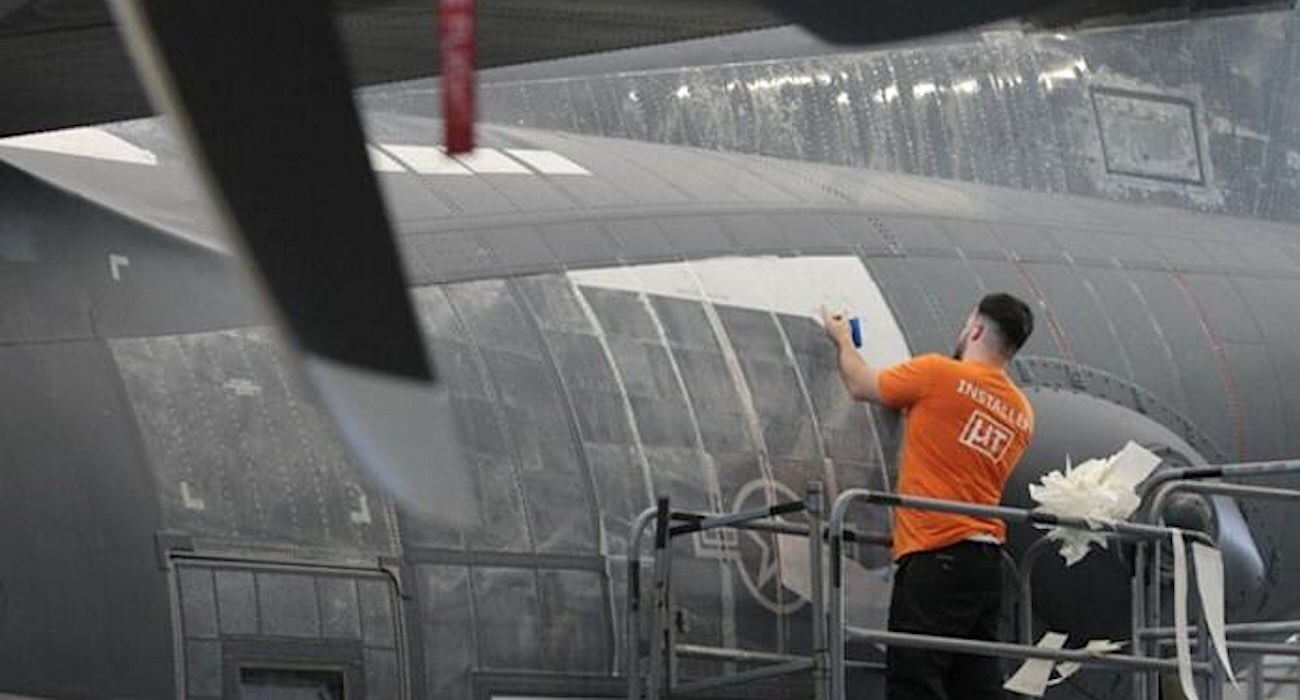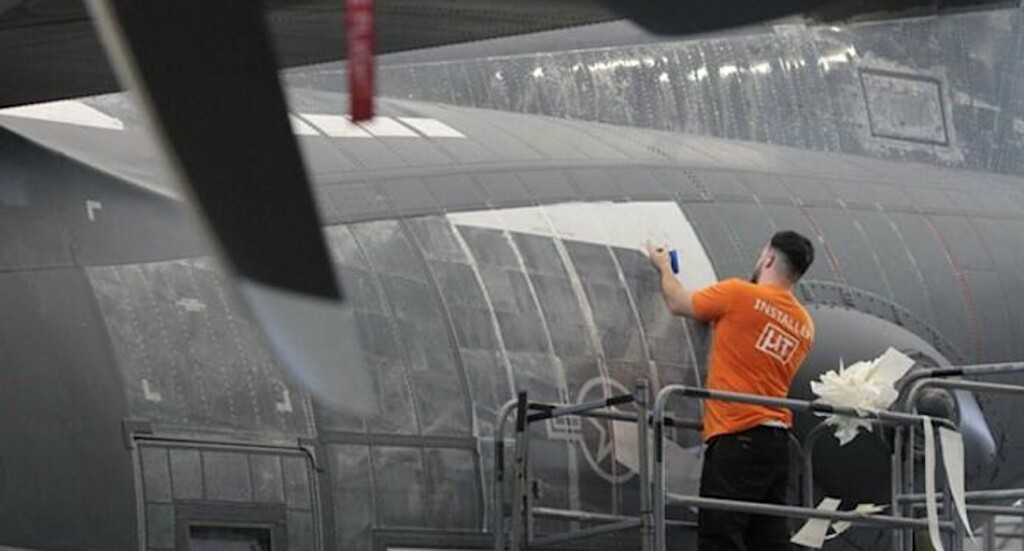‘Shark Skin’ Coating for Airliners May Cut Fuel Use by 4% – Delta is Testing on its 767 Fleet


An Australian aviation startup has developed an adhesive film inspired by shark skin that reduces drag on aircraft due to its sandpaper-like texture.
Sharks are covered in tiny dermal grooves, often called riblets, which help a shark swim faster using less energy. When such microscopic grooves are applied via adhesive film to the exterior of an aircraft it can reduce drag by “smoothing air flow”.
MicroTau says that when its ‘Riblet Modification’ is applied to the wings, fuselage, and tail, the overall efficiency improvement is up to 4%.
“Across the global aviation fleet, this means billions of dollars in fuel saved and millions of tons of CO2 emissions prevented,” says a company statement.
Recently, Delta Air Lines signed an agreement with MicroTau to test the Riblet Modifications on Delta’s Boeing 767 fleet, as part of an “incubator lab” trying to revolutionize the industry to be more sustainable. The Lab includes partnerships with Airbus, Boeing, JetZero, and Ohio electric air taxi company, Joby Aviation.
As the airline industry continues to look to nature for inspiring ways to lessen its impact on carbon emissions (like using bio-fuel and designing new planes to be like migrating geese), this new partnership will assess the fuel savings created by MicroTau’s product on their way to a goal of net zero emissions by 2050.
FLYING GREEN IN DALLAS AND PITTSBURGH:
• Jet Engine Exhaust is Turned into Electricity to Power Dallas International Airport
• Turning a Landfill into a Solar Powerhouse, Pittsburgh Airport is Now Totally Energy-Independent
WATCH the Reuters news report about the startup below…
SHARE THIS NEW GREAT WHITE Shark Skin On Social Media…
Read More: ‘Shark Skin’ Coating for Airliners May Cut Fuel Use by 4% – Delta is Testing on its 767 Fleet










